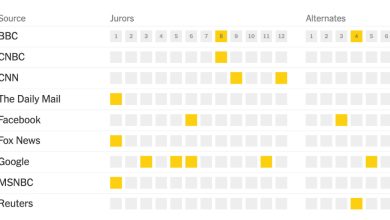Wealth Inequality Drives the Appeal of Crypto

While I was preparing this week’s newsletter about the cultural economics of cryptocurrency and blockchain, crypto trading tanked. Suddenly, my concerns about how different groups of people have different levels of exposure to risky financial instruments became even more urgent.
Emily Flitter wrote for The New York Times last week that it is difficult to know if the crypto bubble is bursting or what that would even mean: “Bitcoin dropped nearly 13 percent before rebounding along with stocks. Ethereum’s own coin, Ether, was briefly down 15 percent. Their price declines have dragged down other digital asset prices, too.” Despite the sell-off, the world of cryptocurrency is so haphazard and, well, wild that no single measure can definitively say if assets are overheated or melting down. What is clear in Flitter’s analysis and Karl Russell’s graphics is that a lot of people lost money last week.
For Anil Dash, the C.E.O. of the software development company Glitch, the deep questions about financial technologies have always been urgent. Dash was also one of the inventors of non-fungible tokens (NFTs) way back in 2014 and has grappled with the way that the technology is being used now.
This week’s newsletter is the first of a two-part discussion with Dash. We covered a lot of ground. We both admit to naïve hope in digital technology’s power to give marginalized people a fighting chance in a globalized world. Both of us have experienced the ire of internet pile-ons and algorithmic vulnerability that should have beaten that hope out of us. And both of us worry that the platforms and players who are turning blockchain-enabled products into risky shell games will continue to evade regulation.
I start with the question that I ended with last week: What social problems do these blockchain-enabled technologies solve? That question is the hardest and most important to answer.
To understand blockchain-enabled technologies, you have to realize that they are parking lots for venture capitalists. Venture capital companies (VCs) are pulling their enormous piles of cash into these technological blank spaces because, not unlike having dump truck, you have to park that beast somewhere. And the blockchain is alluring to the kinds of people who run venture capital companies.
Ten years ago, Dash realized that it was just a matter of time before blockchain became an enormous deal. That was when he attended one of those technology idea-generating conclaves that the industry is fond of. I have attended a couple in my time. The idea is that you get a lot of smart iconoclasts with the right attitude about the potential tech in a room and hack away at a social problem for a few hours. It can be a thrilling experience, if absolutely pretentious and ahistoric. The idea that complex social problems like poverty and failing schools and climate change just need a little technology is seductive, if silly. It was in one of those events where Dash says he knew “blockchain is going to happen. It is just a matter of time.”
But there was no indication that people would be persuaded to use blockchain. That’s because the decentralized ledger that replaces trust with algorithmic documentation in exchanges between two parties is slow and unwieldy. “The one thing about that is to add a line to this database, to this spreadsheet, is two orders of magnitude slower and 10 orders of magnitude more expensive. And who’s going to sign on for that? Why would you do that?” Dash says he asked himself.
The only way a technology that solves a problem that no one knows they have — a “disruptive” technology — becomes culturally powerful is that someone has to subsidize it until it becomes profitable. In the case of blockchain, Dash told me, “it takes pumping in billions of dollars in subsidy to do it. It’s the same as Uber,” and some VCs have invested a lot in making blockchain inevitable. And the amount that VCs have available to throw at investments has ballooned over the past 10 years in a way the average person can’t appreciate. “One check from the real VCs is $20 million, $40 million,” Dash says. “It’s nothing to them. It’s just wealth concentration.”
While I may still be learning some of the intricacies of venture capital and blockchain, I understand wealth inequality just fine. We talk a lot about wealth inequality within the United States but the phenomenon is global. It was bad enough by 2020 but the pandemic has accelerated inequalities, between communities, states and nations. These patterns provide one macro answer to the question of what social problem blockchain solves. Blockchain transforms rising wealth inequality from a problem into an opportunity, for those willing to take the risk of investing.
The pull of any speculative bubble is based in a fact of the world: Somebody somewhere is making a lot of money, and you’re not one of them. A lot of people, like my cousin — a lifelong blue-collar worker with a good pension — believe this. And they are not wrong. That’s one thing my conversation with Dash brought home: There are a lot of people making a lot of money on crypto and NFTs. For those of us who aren’t among the extremely wealthy, the idea that we could join them is a seductive one that has become a cultural phenomenon. And in an atmosphere of economic precarity and wealth inequality, that pull is supercharged. But it is especially powerful among young people. “You talk to anybody under 25, and they’ve been told that crypto is their freedom,” Dash says. It isn’t hard to imagine why.
If you are younger than 45, the internet has been the most powerful institution in your life, hands down. It is more powerful than the government, more intimately experienced than voting, more tangible than a house or a car or a job. You cannot touch the internet but you can feel it. That’s where everything happens, from finding a job to building a social life. When blockchain comes along as schools are closing and then reopening and then kind of closing again, and governments are telling you to Google your closest coronavirus testing site, and your university tells you online orientation is the same as dorm life, and a large number of white-collar people are working from home, and your longest relationships have started on apps and in channels and chat rooms and DMs, blockchain is a reasonable solution to the most basic problems of “What am I supposed to do to survive?”
Dash calls it a big game of FOMO inflected with the chaos of economic anxiety. “Everybody again has a story,” he says. “This guy got in early on Bitcoin, and he made 50 grand. I mean, even I’ve had FOMO about that. I know a guy — he’s smart, but he’s not that smart — who went all in, and he’s way into nine figures, way in.” To be fair, when you put it that way, buying Bitcoin sounds easier and safer than taking one of my college classes. That is, until the bubble bursts.
Next week, we talk about who is in charge of this whole apparatus. Is anyone watching out for rank-and-file crypto enthusiasts as very wealthy venture capitalists use its promise to park their money?
A lot of you wrote in last week to say that you have been a bit embarrassed about not understanding what cryptocurrency, NFTs and blockchain are exactly. That shame is not for regular people to carry. Speculative financial technologies like these derive a lot of their cultural power from being hard to define. Clear definition is usually a sign that an instrument is well regulated. As we will discuss next week, the ambiguity around what crypto is or how blockchain works or how to buy an NFT is part of what makes them seem “too big to fail.”
If you are feeling better about what these terms mean, you may enjoy this roundup of recent coverage.
-
Coral Murphy Marcos details how Black and other minority influencers are looking at retirement funds and finance planning. Tech has changed the way we work, so it’s only fitting that it also changes the way we earn and save. Minority creators often lack wealth management resources, and several share advice.
-
Mike Isaac and Kellen Browning explain the culture of crypto in an overview of NFTs and video games. Surprisingly, many aren’t buying it.
-
A great primer on politicians’ use of Bitcoin/crypto and how it’s being used in local politics for various policy initiatives.
-
Crypto start-ups as “get rich quick schemes,” a.k.a. scams.
-
And a good follow-up on the GameStock saga.
Tressie McMillan Cottom (@tressiemcphd) is an associate professor at the University of North Carolina at Chapel Hill School of Information and Library Science, the author of “Thick: And Other Essays” and a 2020 MacArthur fellow.



